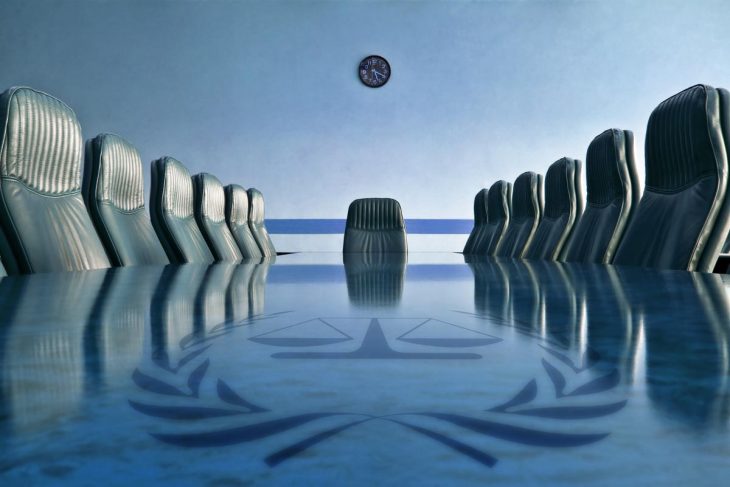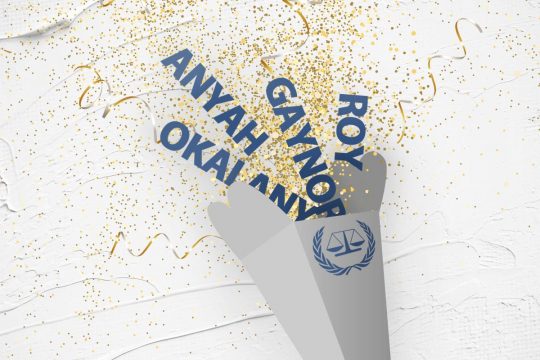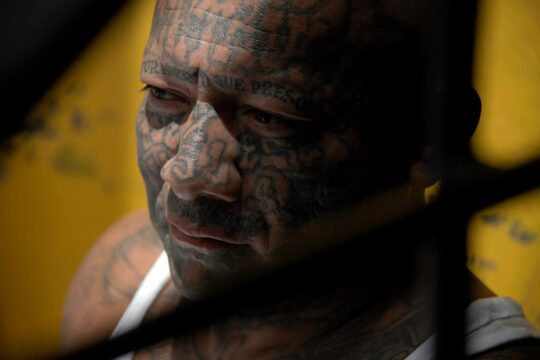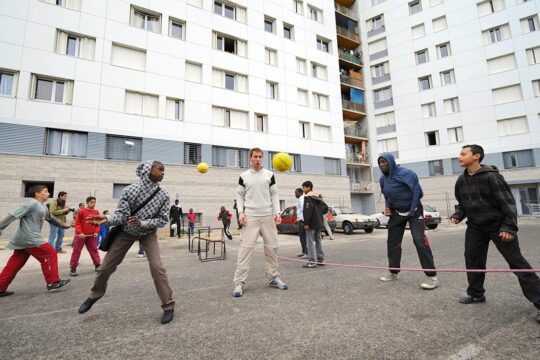To whom will International Criminal Court (ICC) Prosecutor Fatou Bensouda hand the keys to her office in June 2021? Betting on her successor is not easy. The April 2003 election of the first Prosecutor, Luis Moreno Ocampo of Argentina, was intended to reassure the United States, which was brutally opposed to a court it saw as a threat to its sovereignty. The election of Gambian Fatou Bensouda in December 2011 was intended to reconnect with African states hit by nine years of investigations targeting their continent alone. After two decades marked by the successive failures of the prosecution in a number of cases, the States expect the third prosecutor to be "the one to reform," capable of building a coherent criminal policy that will build their confidence and who will remain distant from any attempts to exploit them. With an office of more than 300 people and a budget of almost 50 million euros, the new Prosecutor’s arrival could thus push some long-standing people who share the responsibility for successive failures towards the exit. For there is a wind of "degagism" blowing over the Court.
Betting on outsiders
This exercise is like walking a tightrope. The Selection Committee, made up of ambassadors supported by experts, rendered its conclusions on June 30. It took more than two months for ICC States Parties to reject the Committee's conclusions, which they themselves had wanted in order to select the best candidates, depoliticize the process and reach a consensus candidate. Of the 89 candidates, four were selected: Nigerian lawyer Morris Anyah; Ugandan judge Susan Okalany; Canadian prosecutor Richard Roy; and Irish lawyer Fergal Gaynor. They are all outsiders for the small world of international justice, which took a blow. In The Hague, New York and Geneva some are rejoicing, believing that "we are finally changing course!" Some say it’s "a nightmare", "a joke", or even "corruption"! There are calls from one country to another, between embassies and ministries, heated exchanges on Twitter. The Committee's report acknowledges that “all four candidates recommended to the States Parties for further consideration have areas in which their actual, recorded experience may not be as extensive as considered desirable”. And former Special Court for Sierra Leone Prosecutor David Crane summed up a sentiment shared by many: “The new Prosecutor of the ICC must command immediate respect and have the international stature that is lacking in these proposed candidates.
On learning of the Committee's selection, several States deplored the lack of real choice. After one Latin American and one African, capitals felt that the third prosecutor should come from the West, based on a tacit rule of geographic rotation in multilateral organizations. As such, the two African candidates were automatically rejected by many States. That left the two Westerners. However, the candidacy of Canadian Richard Roy posed a statutory problem. According to the Statute of the Court, the prosecutor cannot be of the same nationality as his deputies. James Stewart, Bensouda's assistant, is also Canadian and will not leave office until 2022. "He'll just have to leave!” stormed one delegate in The Hague. Stewart, himself an unsuccessful candidate for Bensouda's succession, says he "intends to make a useful contribution to the transition that will have to take place at the start" of the new Prosecutor's term. Contacted by telephone, Canadian ambassador and Committee chair Sabine Nölke commented that States could get around the Statute... as they have done in the past! "The current deputy is only going to be there during the transition," she said, before recalling that “years ago, two Japanese judges were on the bench for a year and two Italians for few months”.
Kenya ends hope of consensus
As of July 13, Kenya officially ended the possibility of a consensus. The list gives the impression of placing States before "a fait accompli", wrote its ambassador to The Hague in a letter addressed to the Assembly of States Parties President, South Korea's O-Gon Kwon. The Committee, according to him, favoured Fergal Gaynor, lawyer for the victims of the Kenyan post-election violence in late 2007, for which President Uhuru Kenyatta and his deputy William Ruto were prosecuted by the ICC before it dropped the case. Nairobi's word would therefore have been viewed with suspicion. "We can say whatever we want, but Kenya wrote black on white what a lot of other States think," commented one European diplomat. "By disqualifying the big guys, we were allowing weaker candidates to get through," another diplomatic source said.
As soon as the applications were submitted in autumn 2019, two favourites seemed to stand out. Belgium's Serge Brammertz, prosecutor of the residual Mechanism of the UN tribunals for former Yugoslavia (ICTY) and Rwanda (ICTR) and former deputy to the ICC's first prosecutor Ocampo, was one. Brammertz marked a coup this spring with the arrest of Rwandan Félicien Kabuga, picked up in the Paris suburbs after more than 20 years on the run. Another strong favourite was Karim Khan of the UK. For the past two years, he has been leading the UN investigation into Daesh in Baghdad (UNITAD), has achieved successes for several ICC defendants, and has pleaded for victims in Cambodia. The Committee, which had the power to pre-select up to six candidates, rejected them both.
Anti-mafia prosecutor ruled out
There are plenty of contradictions. “It is interesting that the States who claimed they want something new are now asking for people they know,” observed Nölke during a virtual meeting with NGOs on July 28. When the Committee was created, "States were hoping for profiles of national prosecutors with international experience," according to a diplomatic source in The Hague. However, top new-blood candidate Palermo prosecutor Francesco Lo Voi has been ruled out. This magistrate distinguished himself in 2018 with the arrest of the successor of Toto Riina, godfather of the Cosa Nostra mafia. Lo Voi heads a team of 120 prosecutors and was, in the past, Italy's representative in Eurojust, the network of European prosecutors.
NGOs divided
At the end of July, while a few States supported the Committee not because they agree with it but because it emanates from their Assembly, many wanted a smooth exit, explains one diplomat. They advocated auditioning the four selected candidates to see if any of them could gather a consensus, failing which the Committee’s conclusions would have to be rejected and work would have to start anew. In this way, the Committee would not be totally delegitimized and the States would not be tempted to put forward "wild" candidates.
While the States made their disagreements heard, communiqués follow one another and NGOs were also divided. Thirty of them, led by the Open Society Justice Initiative, Human Rights Watch and the International Federation for Human Rights, believed that disregarding the Committee's conclusions “could lead to the election of a Prosecutor who is unable to provide the leadership, skills and integrity that the ICC so urgently needs”. But six NGOs from Burkina Faso, Congo and the Central African Republic rejected them, calling on States to "draw all possible consequences to prevent the Court from continuing on the wrong track", while ten Kenyan NGOs called on the President of the Assembly to "stand on the right side of history by intervening to end the travesty”.
On July 29 and 30, the four shortlisted candidates were auditioned by States Parties and NGOs. Faced with competitors less familiar with the realities of the Court and with less election advantages, Ireland's Fergal Gaynor came out with flying colours. At a time when some people want to believe in change, Canadian Richard Roy promised to build on the teams in place and to continue the criminal policy of his predecessors. Nigerian-American Morris Anyah drew rather unoriginally on his experience with ad hoc tribunals. Ugandan Susan Okalany faced technical problems. The Internet connection was constantly down, so she had to answer a cascade of questions whenever bandwidth permitted. Faced with a slightly annoyed candidate, the deputy president of the Assembly tried "give me a smile" and was immediately rewarded with the hashtag #SmileGate on Twitter.
Integrity in the MeToo era
"Reading the report, one can see the possibility that the favourites had ethical, moral problems," said one NGO member. In April, the Committee had the States Parties validate "a vetting procedure" introduced at the request of civil society. The report devotes several pages to this procedure and creates confusion, suggesting that several candidates were rejected on this basis. Of the 89 applicants, several expressed anger. At the beginning of July, Nölke explained to the States. "I made the statement very clearly to the States Parties, the vetting process did not disclose any disqualifying information,” she said. The Canadian diplomat also asserted, not without ambiguity, that "those who were removed were not removed without good reason" and that “we received unsolicited messages from a number of quarters, from NGOs, from Bar Associations, even from States Parties, and we disregarded them”.
As early as December 2019 two NGOs, Open Society Justice Initiative and Women's initiative for Gender Justice, called for a check on the "high morality" of the candidates. In January, the ICC staff union warned States about future elected officials, judges and prosecutors, explaining that "intimidation, harassment, discrimination and abuse of power undermine the well-being and health of court staff and lead to a poor working environment". Then, during an online seminar organized by the blogs Opinio Juris and Justice in Conflict, the issue became central. The Hague was at that time rife with allegations against several candidates. Lawyer Danya Chaikel wrote that the next Prosecutor "must embody integrity in the MeToo era”. "When the work and sexual harassment issue came in, it was a matter of great concern particularly to civil society, which is why we incorporated questions on that in the interview and we created the vetting process,” Nölke explains. At the time, the Norwegian Helsinki Committee, in a letter to the Committee, expressed concern that the election was turning into a whistle-blowing exercise.
On September 11, as the Assembly of States Parties President continued his consultations and the prospect of consensus on one of the four candidates faded, Open Society and the Women's Initiative for Gender Justice wrote to him again. They called for an expanded vetting of all potential candidates, including verification of their independence and ties to States, consideration of testimonies from former staff members, and anything that might constitute a "red flag". This time, only the two NGOs signed the appeal, notes Professor Kevin Jon Heller on his blog. "Civil society organizations are playing an unprecedented role in this ICC election process," said Gunnar Ekeløve-Slydal of the Norwegian Helsinki Committee, urging them to “take a step back and reflect carefully on the wider picture”. But the few States that refused to reject the Committee's selection are now clinging to the proposals of the two NGOs and are also asking for guarantees. And the modalities for the rest of the process continue to be debated.
The "big barter" of international positions
Meanwhile, the states are slowly but surely pursuing the "big barter" of prestigious positions in international organizations. Some are counting on the position(s) of Deputy Prosecutor(s), to be elected in 2021. Others, like the United Kingdom, are focusing on the election of their judge, Joanna Korner. The election of judges to the International Court of Justice is the focus of the Belgians and Germans this time, as for Uganda and Kenya.
The location of the election of the Prosecutor is itself a matter of debate. Scheduled in New York, the Assembly could meet in The Hague because of the Covid-19 pandemic and the sanctions decided on September 2 by the US administration against the ICC Prosecutor and her chief of cooperation, to which are added visa bans whose targets are confidential. And uncertainty dominates, as never before, just months away from an eminently symbolic vote for the ICC and for the rest of the world.






